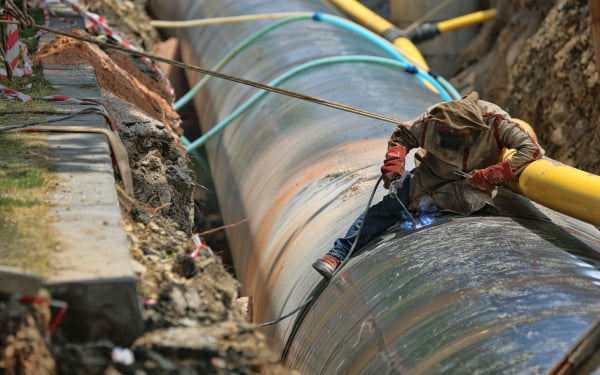
Hillcrest Energy Technologies. (CSE: HEAT)
From concept to commercialization, Hillcrest is investing in the development of energy solutions that will power a more sustainable and electrified future.

Fort McMurray, a major hub for oil sands, is located in northern Alberta, at the heart of the Athabasca oil sands reserves—the world’s third-largest proven crude oil reserve. About 15 years ago, spurred by high oil prices, this small town attracted significant funds and a surge of workers, experiencing a period of prosperity. However, the subsequent plummet in oil prices led to project cancellations and layoffs, cooling off the oil sands investment and development fervor in Fort McMurray.
Today, with the highly anticipated Trans Mountain Pipeline expansion project just days away from completion—an endeavor eagerly awaited by the entire Canadian energy industry—hope for a new era in Fort McMurray’s oil sands economy has been reignited.
Dennis Vroom, Senior Strategic Advisor for the Wood Buffalo Regional Municipality, emphasized the immeasurable value of the Trans Mountain pipeline expansion for Fort McMurray. Serving as Canada’s sole oil pipeline to the West Coast, the expanded pipeline’s daily capacity is set to increase from around 300,000 barrels to 890,000 barrels, significantly boosting Alberta’s oil export capabilities and narrowing the price differential between Canadian and U.S. crude.
However, the construction of this mega-project has been tumultuous, taking over 4 years and costing at least $34 billion CAD, marked by environmental protests, delays, and budget overruns. In 2018, the Canadian federal government purchased the project for $4.5 billion CAD, also incurring substantial asset impairment losses as a result.
As a country rich in oil sands resources, with reserves accounting for over 90% of the global total, Canada has faced challenges due to high extraction costs, poor oil liquidity, and a historical lack of pipelines, leading to heavy reliance on U.S. exports. Canadian energy companies have grappled with transportation issues, compounded by refining and transportation costs, resulting in suboptimal pricing for their products. Solving transportation hurdles, particularly by connecting pipelines to ports for access to the Asia-Pacific market, could significantly boost profitability for Canadian oil producers.
While the Trans Mountain project is set to launch soon, many industry experts project that Canada’s oil production will surpass pipeline capacity within a few years, possibly as early as 2026. A recent TD Economics report indicates a year-on-year output growth of 6%-10% for Canadian oil production this year, equivalent to 300,000-500,000 barrels per day. Even at a 6% production growth rate, this level matches the average annual growth during the heyday of high oil prices and Alberta’s oil sands development (2010-2015).